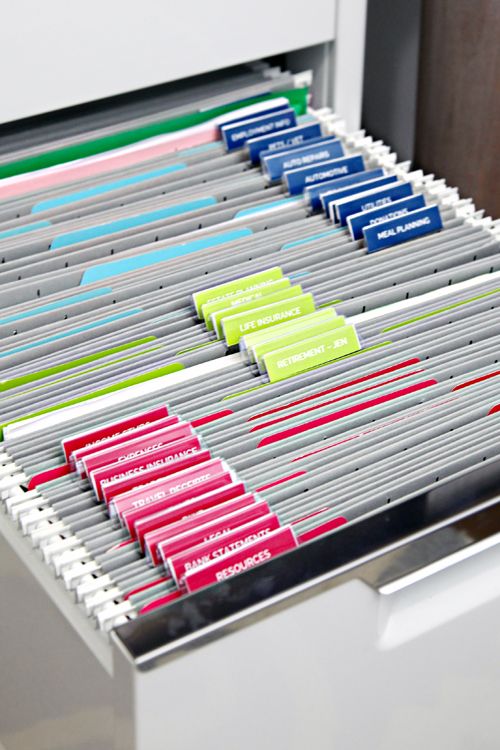Work and personal files are highly crucial and losing even just one can have a big impact. When you do business, especially those that keep customer records, your document management processes must be extra efficient, or else, you risk losing these records and your customers’ trust. Likewise, if you lose work-related files, you, the affected staff, and managers will all suffer the consequences.
With regards to personal files such as birth certificates and passports, they’re extremely critical in traveling and obtaining licenses and employment. Although there are ways to retrieve them if you lost them, they’re not worth the hassle and anxiety, especially knowing that you could’ve prevented their loss.
Many of us already use backups and cloud storage to keep our important files safe, but are those strong enough to protect them? Let’s see some more ways on how we can keep our crucial files safely stored.
1. Organize
Before using any high-tech storage tool, make sure your files are well-organized, to begin with. If you’re dealing with digital files, here are some tips on organizing them:
- Use the default file location for program files. When you install a software or app, avoid confusion by keeping them where the computer automatically saves them.
- Save all files in a single main folder. In Windows, a folder called “My Documents” exists by default, so save all your document subfolders in this location. If the files are for sharing, create a main folder called “Shared Documents,” and have every shared file stored in it.
- Create a hierarchy. Label your documents properly and save them in a hierarchical order to easily locate them.
- Sort your files. Create a folder for each similar files, for example: “Customer Data” or “2019 Invoices.”
- Name files specifically. Include dates, names, and everything else essential in the file name. Avoid general names like “receipt” or “letter.”
- Put the most opened folder at the top. Put an “AAA” in the name of the busiest folder so that they’ll always be on top of the list.
2. Use Low-Tech and High-Tech Storage
Printed documents must be kept in a safe, or any storage with a secure lock. Protect them even more by making digital versions of them through taking a photo of them or scanning them in your computer. Save them in your laptop and other mobile devices, keeping a back-up in your cloud storage.
3. Know Where NOT to Store Your Files
Your purse, wallet, and the like, should never house your important files. You risk loss or damage of these files when you experience theft, or have left them behind by mistake. Only keep your files where they can’t be accessed by unauthorized people.
4. Use Cloud Storage
Cloud storage is now being used by all successful companies to back up their data. You can also use the cloud to store your personal files, such as memorable family photos. Choose excellent online photo storage that automatically backs up your files as you save them on your desktop or laptop, so that you won’t have to go through the extra step of manually saving your file in the cloud.
5. Don’t Rule Out Local Data Backup
No matter how high-tech and secure the cloud is, they’re not foolproof, so don’t abandon the use of local data backups. Save a copy of all your files in a separate drive, like an external hard drive, and make sure to back up each new file immediately. Keep the external hard drive somewhere protected and secure, such as security boxes at banks or in a safety deposit box. The storage should be away from your office if you’re backing up work-related files.
With all your important documents safe and secure, the risks of losing them will significantly be lowered and you’ll never be in serious trouble if one of them gets corrupted or accidentally deleted. Check your backups daily as well to ensure that everything is well-stored and organized.
